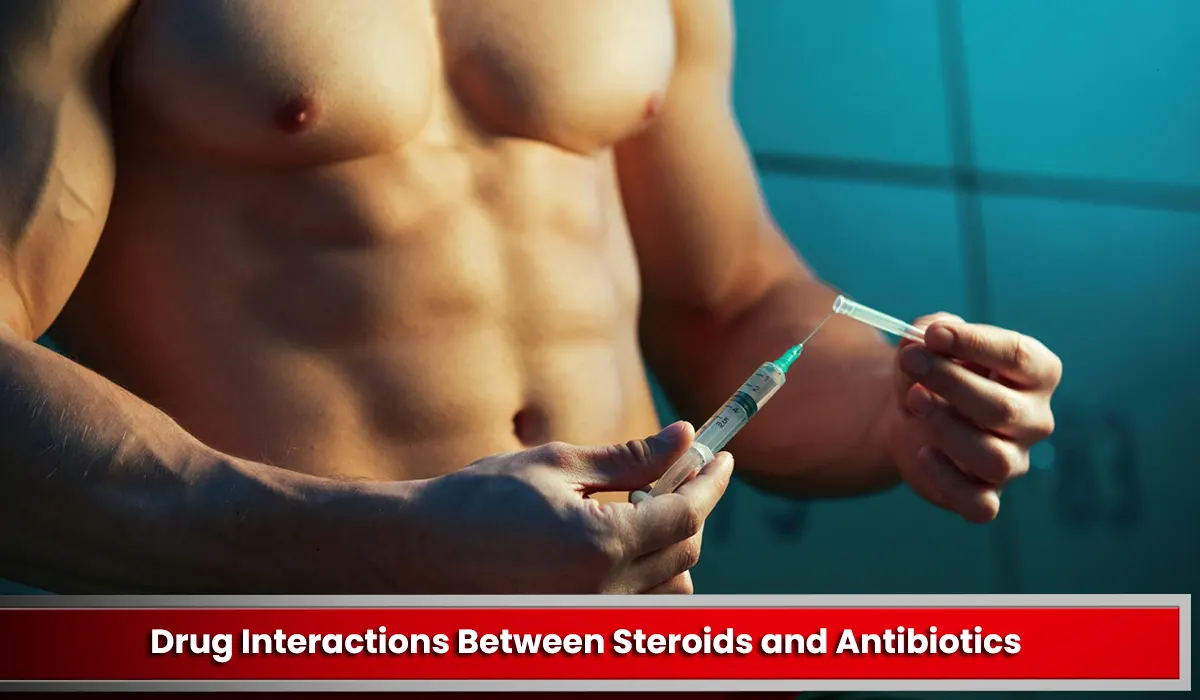You’re probably on or have been on a steroid if you have rheumatoid arthritis (RA). In small doses, steroids can help reduce RA joint pain. A short course of a steroid, such as prednisone, may also be prescribed by your doctor to help you get through a very difficult RA flare-up.
When taking steroids, you must be cautious when combining them with other medications, such as antibiotics. Many people wonder if combining antibiotics and steroids is safe. Can the steroid boost the antibiotic’s effectiveness? We contacted leading doctors to clear the air on the topic of mixing steroids and antibiotics.
What are Steroids?
Steroids are hormones that are either naturally produced by the human body or artificially created and given into the system. Steroids get their name from their chemical structure, which is derived straight from cholesterol, which is found in both plants and animals.
Steroids became widely available in the early 1950s. Two scientists, John Ziegler and C.J. Koch looked at the effect of testosterone on athletic performance. They ended up presenting a modified version of the medicine because it had no negative effects in human testing on osteoporosis patients. The altered chemical was marketed as “Deca-Durabolin,” but it is now known as nandrolone.
In the late 1960s, a doctor named Francis Ziegler in the United States experimented with a steroid called testosterone propionate extracted from sheep testicles and successfully developed a new medication that was later marketed under the brand name “Depo-Testosterone.” This was the first time that medication was directly derived from an anabolic steroid.
Steroids are typically administered orally, either as pills or as a liquid mixture. The majority of people prefer to take them in pill form because they are easier to swallow and test enanthate bodybuilding transport during workouts. Anabolic steroids for injection, like any other medication injected into the body, require medical attention, but they can sports mens be administered at home without the direct supervision of a medical practitioner.
How steroids work inside the human body

The way steroids work inside the human body differs based on the steroids used, the aim of the steroid, and the individual’s physiological state. The most typical way steroids work is through binding to androgen receptors found in skeletal muscle cells. This would stimulate protein synthesis in those cells, resulting in more muscle hypertrophy.
The effects of this steroid on the body can be evident as early as a few weeks because it directly reaches target tissues where many changes occur. A person will be able to see the benefits of using steroids within only a few weeks or months.
Steroids are often taken orally, injected into muscles, or applied to the skin as a gel, depending on their intended application. When taken orally, anabolic steroids take 7 to 8 hours to reach their peak concentration in the blood. In contrast, injectable steroids can be detected in high concentrations within a few minutes after injection because they enter the bloodstream directly.
Difference Between Steroids and Antibiotics
Steroids (also known as corticosteroids) are anti-inflammatory medications. Doctors routinely prescribe these to treat the joint inflammation and edema produced by RA. Steroids are also used to treat allergic reactions, asthma, and to calm an overactive immune system in those suffering from autoimmune diseases such as lupus and RA, where the immune system mistakenly targets healthy tissue. Common oral corticosteroids include prednisone, methylprednisolone, dexamethasone, and cortisone.
Antibiotics have a distinct action. “Antibiotics have an antibacterial effect—they target bacteria when you have an illness,” says Alia Aaeedy, director of pharmacy at Texas Surgical Hospital in Plano, TX. For example, you might take an antibiotic to treat strep throat, an ear infection, or a sinus infection. An antibiotic, on the other hand, does not help fight viruses like the common cold, the flu, or COVID-19 since it destroys germs.
Antibiotics are divided into numerous classes and variations; consult your doctor to determine which one is best for you.
Can You Take Steroids and Antibiotics at the Same Time?
The answer is dependent on the specific steroid, antibiotic, and infection—but in rare cases, your doctor may prescribe both medications at the same time. The antibiotic destroys bacteria, but the steroid alleviates inflammation and pain. The steroid dexamethasone has been demonstrated to be beneficial in people with bacterial meningitis, according to a study published in The New England Journal of Medicine. For certain infections, the two are frequently prescribed concurrently.
Drug Interactions Between Steroids and Antibiotics

However, if you are taking both oral steroids and antibiotics, you should be aware of some potential interactions. Here are a few examples of common ones to be aware of. Always consult your provider if you are unsure about drug interactions or have further questions.
Dexamethasone and Antibiotics
Certain antibiotics and dexamethasone, a type of steroid, may interact. “Because of an increased risk of tendon rupture, the antibiotic levofloxacin [part of the quinolone class of drugs] and dexamethasone should not be used together,” Madison notes. The antibiotic erythromycin can increase the amount of dexamethasone in your system, increasing your risk of negative effects.
Prednisone and Antibiotics
Prednisone, like all corticosteroids, has the potential to interact with quinolone antibiotics (levofloxacin, ciprofloxacin) and tear a tendon (tissue connecting muscle to bone). Madison feels that mixing prednisone with penicillin antibiotics like amoxicillin is safe.
Can You Drink Alcohol While on Antibiotics or Steroids?
Doctors urge patients not to drink while taking medication not because a glass of wine or a beer will make the antibiotics less effective. While taking certain medicines, alcohol can increase your chances of experiencing undesirable side effects. While using alcohol, certain antibiotics, such as Flagyl (metronidazole), Tindamax (tinidazole), and Bactrim, should be avoided (sulfamethoxazole). The combination could result in nausea, vomiting, a rapid heart rate, and headaches.
Although there are no known interactions between alcohol and steroids such as prednisone, excessive drinking may worsen your side symptoms, such as stomach trouble. Aaeedy states, “You may have heartburn, acid reflux, or gas.” To be safe, avoid or limit your intake of alcohol when using oral steroids.
Side Effects of Steroids and Antibiotics
Side effects are a risk with any medicine, including steroids and antibiotics. When these two drugs are combined, however, the gastrointestinal side effects can be increased. “The bulk of side effects are associated with GI toxicity,” Madison says. Antibiotics, for example, are frequently associated with nausea, diarrhea, and stomach irritation. Corticosteroids can produce nausea and cramping because they irritate the stomach lining. To summarize, combining antibiotics and steroids may increase the risk of stomach issues.
Why Doctors Prescribe Steroids With Antibiotics
When you’re sick, your doctor may prescribe both an oral steroid and an antibiotic. This is intended to hasten your recovery. “The steroid lowers the swelling and inflammation caused by an infection, such as nasal swelling in the event of a sinus infection,” Aaeedy explains.
Do Steroids Increase Antibiotic Effectiveness?
Several studies have found that the two medications work better together than either alone in treating specific infections. A recent study found that corticosteroids and antibiotics worked better combined to treat bacterial meningitis. Taking steroids and antibiotics at the same time improved pneumonia recovery time in animal trials. To be clear, researchers do not believe steroids increase the effectiveness of antibiotics, but they do believe that by reducing inflammation, the infection would heal faster.
To recap, combining most antibiotics with steroids is safe—and the combo may even help you recover from illness faster.
